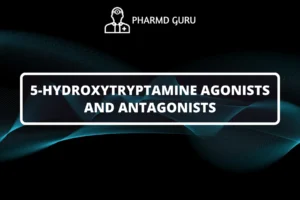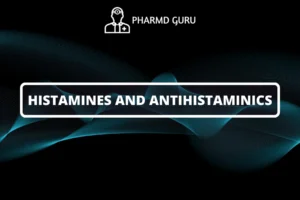Congestive heart failure (CHF) is a chronic condition characterized by the heart’s inability to pump blood effectively. It can result from various underlying causes, such as coronary artery disease, hypertension, or heart valve disorders. The management of CHF involves a comprehensive approach that includes lifestyle modifications and medications. In this article, we will explore the drugs commonly used in the therapy of congestive heart failure, their mechanisms of action, and their role in improving symptoms and quality of life for patients.
SCROLL DOWN TO THE BOTTOM OF THIS PAGE FOR ACTUAL NOTES.
TABLE OF CONTENTS:
- Introduction
- Mechanisms of Action
- Classes of Drugs Used in CHF Therapy
- Angiotensin-Converting Enzyme (ACE) Inhibitors
- Angiotensin II Receptor Blockers (ARBs)
- Beta Blockers
- Diuretics
- Aldosterone Antagonists
- Digoxin
- Sacubitril/Valsartan (ARNI)
- Hydralazine and Isosorbide Dinitrate
- Combination Therapies
Introduction
Congestive heart failure occurs when the heart’s pumping capacity is compromised, leading to fluid accumulation in the lungs and other parts of the body. The treatment of CHF aims to improve symptoms, reduce hospitalizations, and enhance the overall quality of life for patients. Medications play a crucial role in managing CHF and are often prescribed alongside lifestyle modifications.
Mechanisms of Action
The drugs used in CHF therapy exert their effects through different mechanisms, targeting various aspects of the condition:
Angiotensin-Converting Enzyme (ACE) Inhibitors
ACE inhibitors, such as lisinopril and enalapril, inhibit the enzyme responsible for converting angiotensin I to angiotensin II. By doing so, they reduce the production of angiotensin II, a potent vasoconstrictor that leads to increased blood pressure and fluid retention. ACE inhibitors help dilate blood vessels, reduce fluid buildup, and improve cardiac function.
Angiotensin II Receptor Blockers (ARBs)
ARBs, such as losartan and valsartan, block the action of angiotensin II by binding to its receptors. This prevents the vasoconstrictive effects of angiotensin II and helps lower blood pressure, reduce fluid retention, and improve overall cardiac function.
Beta Blockers
Beta blockers, such as carvedilol and metoprolol, block the beta-adrenergic receptors in the heart. By doing so, they reduce the heart rate, decrease the workload on the heart, and improve the heart’s pumping efficiency. Beta blockers also help regulate heart rhythm and can have beneficial effects on long-term survival.
Diuretics
Diuretics, such as furosemide and hydrochlorothiazide, increase urine production and help eliminate excess fluid from the body. They reduce fluid retention, alleviate symptoms of congestion, and decrease the workload on the heart.
Aldosterone Antagonists
Aldosterone antagonists, such as spironolactone and eplerenone, block the effects of aldosterone, a hormone that promotes sodium and water retention. By inhibiting aldosterone, these medications help reduce fluid buildup and improve cardiac function.
Digoxin
Digoxin is a medication derived from the foxglove plant. It increases the force of contraction of the heart muscle and helps regulate the heart’s rhythm. Digoxin is primarily used in patients with heart failure and atrial fibrillation to control heart rate and improve symptoms.
Sacubitril/Valsartan (ARNI)
ARNI (angiotensin receptor-neprilysin inhibitor), specifically sacubitril/valsartan, is a newer class of medication that combines an angiotensin receptor blocker (valsartan) with a neprilysin inhibitor (sacubitril). Neprilysin is an enzyme that degrades certain peptides involved in regulating blood vessel dilation and sodium excretion. By inhibiting neprilysin, ARNI helps improve cardiac function and reduce symptoms in patients with CHF.
Hydralazine and Isosorbide Dinitrate
Hydralazine and isosorbide dinitrate are often used in combination. Hydralazine dilates blood vessels, reducing resistance to blood flow, while isosorbide dinitrate relaxes veins and reduces the workload on the heart. This combination is particularly beneficial for patients who cannot tolerate ACE inhibitors or ARBs.
Combination Therapies
In many cases, a combination of medications is prescribed to manage CHF effectively. The specific combination depends on the severity of the condition, individual patient factors, and the presence of comorbidities. Healthcare professionals carefully tailor the treatment plan to optimize symptom control and enhance outcomes.
ACTUAL NOTES:




